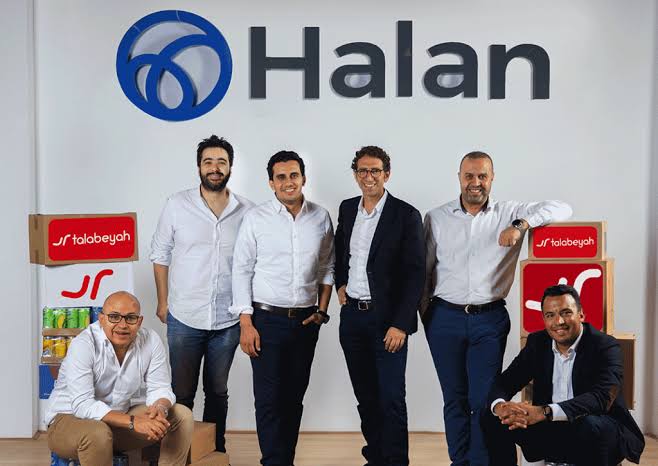- Egypt has overtaken Nigeria by raising $540 million in tech startup funding in the year to June 2023.
- This year, Egypt achieved a major milestone by creating its first unicorn, MNT-Halan.
- In the year to June 2022, the Big Four—Nigeria, Kenya, South Africa and Egypt—jointly raised $4.6 billion. This was a 25 per cent drop from the $710 million raised previously.
Egypt is today the leading market across Africa with total equity in tech funding raised by start-ups in the last one year surpassing rival Nigeria. Data from the African Private Equity and Venture Capital Association (AVCA) shows that the North African country overtook Nigeria as start-ups raised $540 million in funding in the year to June 2023.
This was, however, a 25 per cent drop from the $710 million raised the previous year. The least decline recorded among the big four African countries that raised the most in tech funding. Egypt was also the only country to climb over the half-billion mark over the review period.
Egypt’s tech funding landscape
This year, Egypt achieved a major milestone by creating its first unicorn, MNT-Halan. Founded in 2018, MNT-Halan is Egypt’s largest and fastest growing lender to the unbanked.
Egypt is now a more appealing country for investment thanks to rising entrepreneurship, VC funding, and startup-related policies. The rise of the tech industry and, particularly, e-commerce firms is attributable to tech incubators and international accelerators.
Egypt Ventures, a government-backed venture capital firm, is one of many VC firms and government support programs in the northern African nation that provide money to startups. It is supporting tech-based startups that strengthen the ecosystem of innovation. Nclude, the newest fintech fund backed by Global Ventures and Egypt’s biggest banks, will bring in more capital for the nation’s IT industry.
While the rate of startups participating in accelerator or incubators programs in Egypt is increasing, the public sector is supporting the segment through initiatives such as TIEC.
Slowdown in Africa’s tech funding
Tech companies in Nigeria were the hardest hit by the slowdown in Africa’s tech funding. They experienced a 77 per cent year-on-year decrease to $470 million. In the previous year, tech funding in Africa hit $2 billion.
Similarly, South African start-ups registered a 53 per cent drop in investment, plummeting to $420 million. In East Africa, Kenya based tech firms experienced 69 per cent drop in tech funding to $300 million during the same period.
Kenya’s pioneering status as a leading continental ecosystem is even more impressive considering the relatively low population compared to Nigeria. Nairobi prides itself with the birth of M-PESA, a popular and original initiative in Africa’s fintech industry. M-PESA is a mobile banking platform that allows people to send and receive money through their phone.
Africa’s Big Four have been significant financing magnets for tech startups’ funding. M-Kopa is a recent example in Kenya. It raised $75 million last year to enter new markets, while digital firm Wasoko is vying to become the nation’s first unicorn.
Kenya’s Startup Act uses incentives for businesses and incubators to promote innovation and entrepreneurship. The Micro and Small Enterprises Policy, another recent public sector initiative, intends to legitimize MSMEs while fostering an atmosphere that is conducive to conduct their business.
“During ‘the funding heatwave’ between June 2021 and June 2022, the Big Four—Nigeria, Kenya, South Africa and Egypt—jointly raised $4.6 billion. This fell to $1.7 billion in the ‘funding winter’ between June 2022 to July 2023,” AVCA said in a report. The “funding winter” first bit the US and China before spreading.
Fintechs dominate funding
According to AVCA, fintech sector has continued to attract most equity funding, though at a slower pace. Over the years, the success of companies such as Nigeria’s Paystack, acquired in 2020 by US payments firm Stripe, and another unicorn startup Flutterwave is powering deal making in Africa.
Other notable successes are payments platform MFS Africa, Kenyan fintech and solar firm M-Kopa and e-commerce company Wasoko. The report, however, highlights that it was not all doom and gloom this year.
“Against all odds, three markets managed to pull off growth in this unfavorable context,” the report co-authored by Maxime Bayen, the Operating Partner for Catalyst Fund, and Max Cuvellier, Head of Mobile for Development, GSMA said.
Funding grew 15 per cent in Côte d’Ivoire and 34 per cent in Cameroon. The biggest jump by far was recorded in Algeria from $30 million to $150 million. Industry analysts attribute Algeria’s rise to a single deal—YASSIR’s investment in November 2022.
Noureddine Tayebi, Founder and CEO of YASSIR, a multi-sided marketplace offering on-demand services such as ride hailing, food and grocery delivery, banking and more, raised $150 million in Series B funding from a series of prominent global investors.
Also Read: Flutterwave picks Kenya as East African hub
